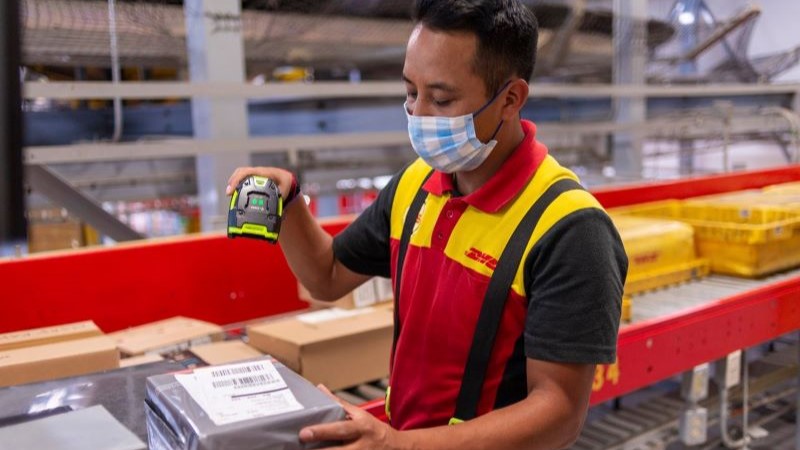Grow your business with the Discover newsletter
Logistics advice & insights straight to your inbox
Subscribe now
In the intricate web of global commerce, the bilateral trade in goods between Singapore and Indonesia emerges as a dynamic force, shaping economic landscapes and fostering cross-border connections.
As Singapore exports its ingenuity and products to Indonesia, the figures by Trading Economics speak volumes — an impressive US$37.23 billion in 2022, a testament to the robust trade ties that bind these nations together. This shows that understanding the processes involved in international shipping from Singapore to Indonesia is an endeavour that holds vast potential for businesses.
Whether you're merely sending packages to customers or expanding your market reach through e-commerce, acing cross-border delivery is the conduit that binds you to new horizons. And at the juncture where Singaporean entrepreneurship meets Indonesian promise, a firm grasp of Indonesia's import taxes, customs regulations, and trade intricacies becomes indispensable.
Indonesia's groundbreaking Omnibus Law was passed not too long ago. Since then, it has garnered widespread acclaim as a pivotal stride towards invigorating business reforms, a strategic move to beckon investments and stimulate economic vitality.
In parallel, this legislative endeavour has embraced the task of refining the nation's import and export domain, aligning with its ambitious aspiration to ascend as the fourth-largest global economy by 2045. To fulfil this, steps such as simplifying licensing processes have been implemented. However, that does not mean that businesses can shift their focus away from the importance of understanding the process of importing goods into Indonesia.
Here is all the key information that you need to know about importing goods into Indonesia.

Steering through the intricacies of exporting goods overseas demands an understanding of Indonesia's Harmonisation System (HS) Code, an indispensable classification tool encompassing diverse product categories. These HS Codes are universally recognised designations, fostering precision and coherence in commodity classification across regulatory bodies, industries, and businesses.
This meticulous categorisation is key to potential prerequisites, as certain commodities might mandate additional licences or registrations. This means that in cases of HS Code restrictions, consignees must acquire permits from the appropriate agency, especially for post-border restrictions in B2C shipments.
However, the role of HS Codes transcends mere categorisation; it also determines the tax rates, customs duties, and any specialised import/export requisites for specific products.
After you've checked the Indonesian HS Codes, there are a few key import document requirements to look into during the shipment preparation phase:.
When exporting goods to Indonesia, a range of charges comes into play. This includes import duty, Value-Added Tax (VAT), and Luxury-goods Sales Tax (LST). The responsibility for settling these tariffs and taxes lies with the importer.
However, if you're utilising DHL Express and hold a MyDHL+ account, you have the option to prepay the charges of the customs duties and taxes online on behalf of the recipient. DHL Express then processes an invoice for the sender, encompassing the paid duties or taxes and a modest administrative fee.
Certain items, such as motor vehicles, are subject to LST upon their import or delivery by the manufacturer to a third party. Presently, the LST is levied at varying rates spanning from 10% to 95%.
In addition to the LST duties, a standard 10% VAT is imposed on all imported goods.
Furthering this, an import duty will be imposed. Import duties in Indonesia range from 0% to 150%, based on the customs value of the incoming goods. This customs value calculation pertains to the cost, insurance, and freight (CIF) level, contributing to the determination of applicable import duty rates.
Do note, however, there is the De Minimis value to consider. The De Minimis value involves the introduction of goods into a nation without subjecting them to duties and taxes as long as their value remains below a specified threshold.
Indonesia has set its De Minimis Limit at US$3 per shipment. This means that commodities with a value of up to US$3 can be imported into Indonesia devoid of incurring additional taxes, only being subjected to the VAT of 10%.
Navigating Indonesian customs and import regulations can be intricate and perplexing. To simplify this experience, we at DHL Express extend our customs services, encompassing clearance authorisation facilitation, multiline entry for shipments containing multiple commodities, and export declarations for controlled items or shipments surpassing designated value or weight thresholds. Moreover, we aid in identifying the HS Codes of your goods, streamlining the classification process and subsequent tax and duty evaluations.
In Indonesia, certain goods are subject to stringent regulations or outright prohibitions upon importation. These measures are in place to ensure the safety, security, and compliance of goods being brought into the country. It's crucial for businesses in Singapore looking to ship to Indonesia to be aware of these restrictions to avoid any complications during the customs clearance process.
Here are some examples of goods that are completely prohibited from being imported into Indonesia:
Understanding the array of customs laws, regulations, duties, tariffs, and taxes involved in exporting goods to Indonesia can be complex and bewildering. This is where our expertise in international shipping guides you through the many steps involved in understanding how to ship to Indonesia.
International shipping may appear intricate, but with the right courier service at your side, you can ensure a seamless shipping and delivery experience for both you and your recipient. As a leader in international shipping, DHL Express is a reliable and proficient shipping partner with extensive expertise in customs regulations specifically tailored to Singapore's requirements.
Our team is ready to assist you every step of the way, addressing any challenges you may encounter and ensuring a smooth overseas shipping process to Indonesia.
Open a business account today to discover how you can leverage our expertise in international shipping and delivery, designed exclusively for Singaporean businesses.